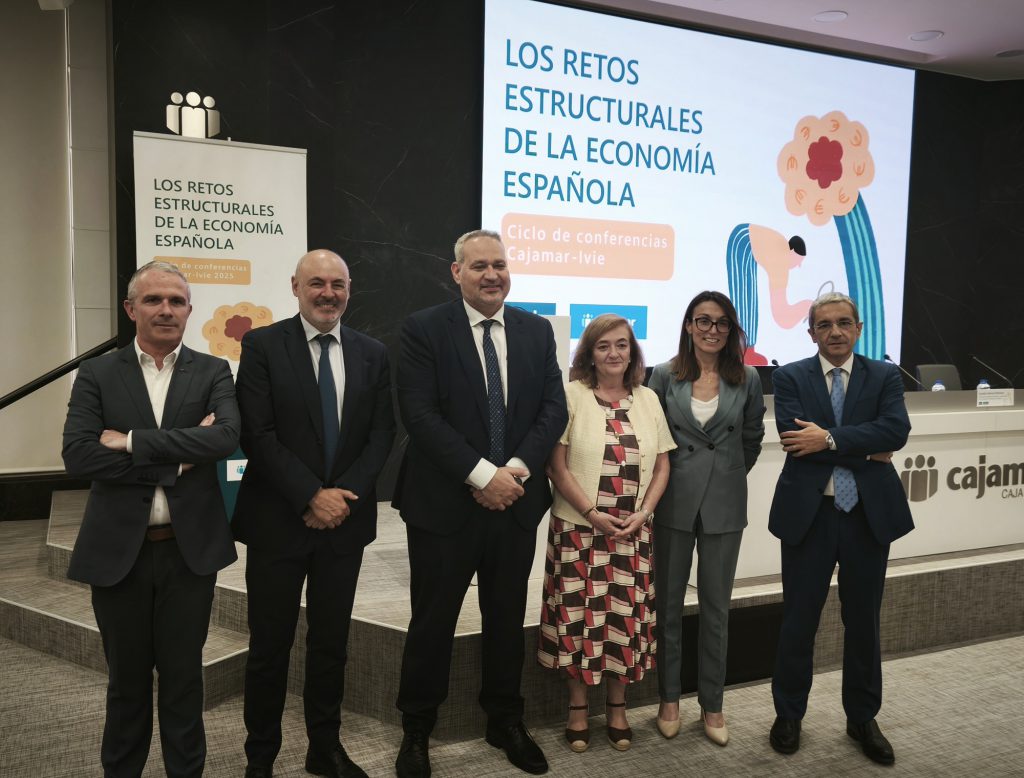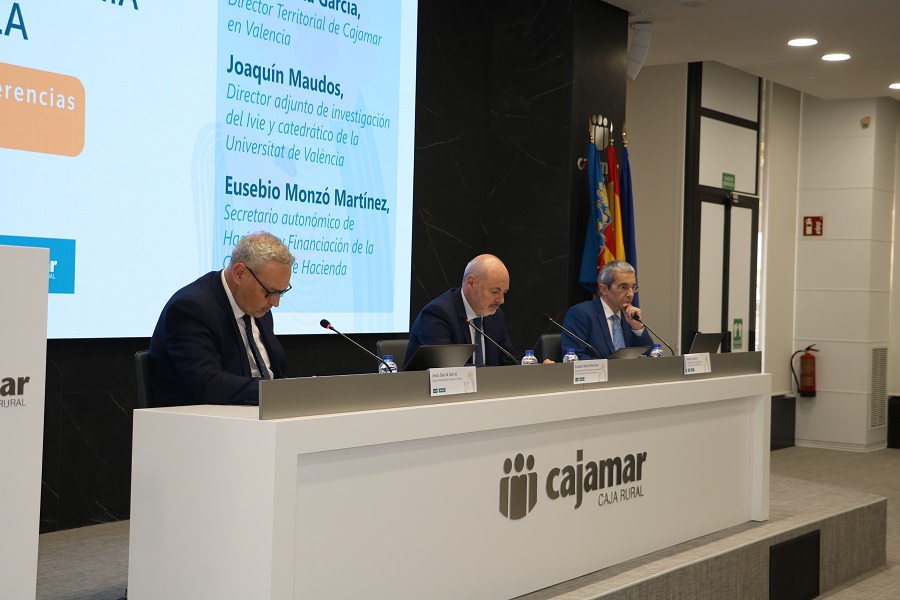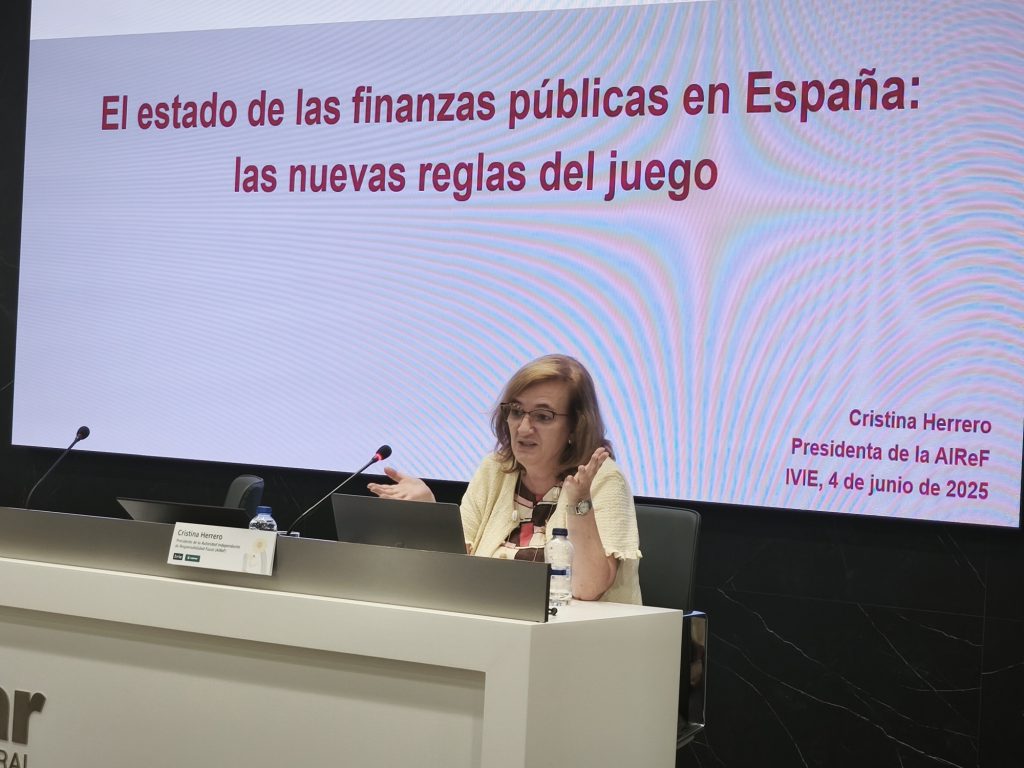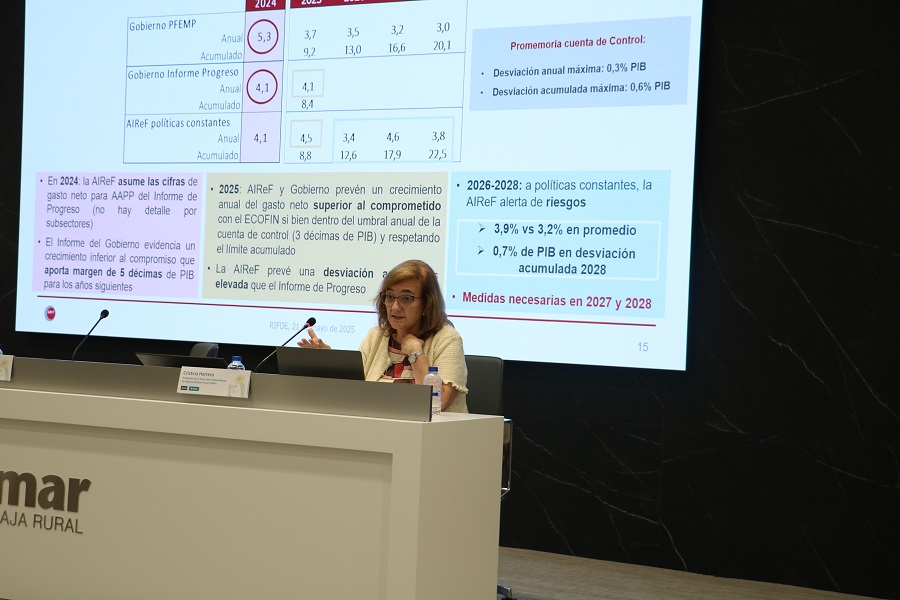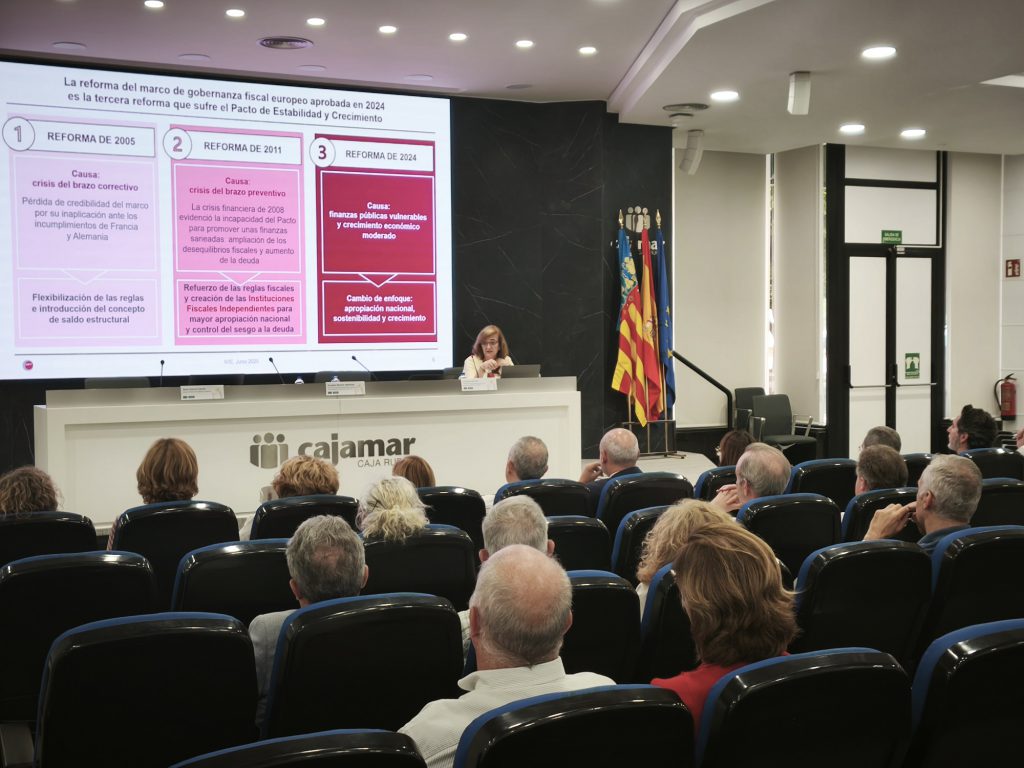Esta web utiliza cookies para que podamos ofrecerte la mejor experiencia de usuario posible. La información de las cookies se almacena en tu navegador y realiza funciones tales como reconocerte cuando vuelves a nuestra web o ayudar a nuestro equipo a comprender qué secciones de la web encuentras más interesantes y útiles.
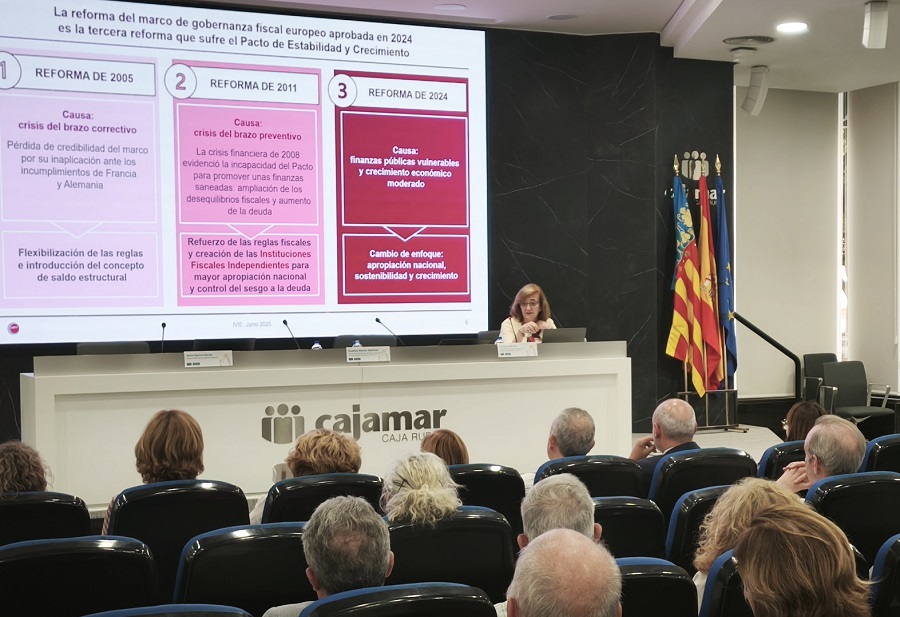
Cristina Herrero, president of AIReF: “Reform of the national fiscal governance framework can no longer be postponed.”
The President of AIReF delivered a lecture in Valencia as part of the conference series The Structural Challenges of the Spanish Economy, organized by Cajamar and Ivie
Cristina Herrero, President of the Independent Authority for Fiscal Responsibility (Airef), was the main speaker in the series on structural challenges in the Spanish economy (Los retos estructurales de la economía española), organized in Valencia by Cajamar and Ivie. In her address, she emphasized that reforming Spain’s national fiscal governance framework is an urgent priority. She announced that Airef will publish an report this year outlining the key elements that, in the institution’s view, should be addressed to align the national framework with the new European fiscal rules and to overcome longstanding limitations.
This was the 5th conference in the series that began in February, with the aim to foster reflection and debate on pressing economic issues. Jesús García, Cajamar’s Regional Director in Valencia, and Joaquín Maudos, Ivie Research Deputy Director and Professor at the University of Valencia, introduced the main speaker. Eusebio Monzó, Valencia’s Regional Secretary of Finance and Funding of the Ministry of Finance and Economy, also took part in the event.
Herrero began by reviewing the reform of the European fiscal governance framework, approved in 2024. The new approach introduces a profound change by placing sustainability and growth at its core, calling for greater national ownership by countries and for the establishment of stable medium-term commitments. Other notable changes include the establishment of a new control variable—net primary expenditure excluding discretionary revenue measures—and the adoption of medium-term fiscal-structural plans (MTPs) as central planning tools.
In her speech, she recalled that Spain presented its first MTP in October 2024, which Airef evaluated in November, concluding that it is a political commitment to aggregate fiscal targets rather than a true medium-term fiscal strategy. Herrero added that this minimalist approach was repeated in the government’s first annual progress report, published on April 30, which the Airef found lacking in ambition in its report dated May 14.
In its May 14 report, Airef estimated that no additional measures would be necessary in 2025 and 2026 to meet the new European fiscal rules, but that further action would be required in subsequent years. It also assessed the impact of complying with Spain’s national spending rule and concluded that while it would enable compliance with the European rule in 2025 and 2026, it would fall short in 2027. On the other hand, Airef proposed a scenario based on compliance to government spending commitments that would reduce the deficit and public debt, provided adjustments begin in 2027. Under this scenario, the deficit would reach 1.7% of GDP by 2028 and debt would fall to 75.6% of GDP in 2041.
The report also updated Airef’s macroeconomic and fiscal forecasts for 2025-2029 in a scenario of constant policies. It estimated GDP growth of 2.3% for 2025, gradually moderating to 1.5% in 2029. In this context, the public deficit is expected to remain below the 3% of GDP threshold throughout the period, and the debt ratio would follow a slight downward path.
Based on these analyses, as Cristina Herrero pointed out in her speech, Airef concludes that it is necessary to define a genuine medium-term strategy and begin reforming the national framework. In addition, she stated that the new fiscal framework strengthens the role of Independent Fiscal Institutions such as Airef with a new function of analyzing the soundness, consistency, and effectiveness of the national framework. Airef’s forthcoming report will address these issues in detail.
According to Cristina Herrero, a national reform—essential to align regulations with European changes and to address long-standing deficiencies—can no longer be postponed. It also requires a comprehensive vision involving all stakeholders, including regional administrations, Parliament, Airef, and the Fiscal and Financial Policy Council. In fact, Cristina Herrero considered that the reform must go beyond simply transposing the European Directive and should address all elements of the national governance framework.
Following this conference, the series organized by Cajamar and Ivie will conclude on Wednesday, June 11, with a presentation by Raquel Carrasco, Professor in the Department of Economic Analysis and Quantitative Economics at the Complutense University of Madrid. Her lecture will focus on the economic effects of immigration in Spain.


